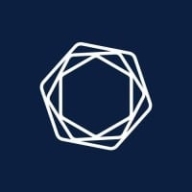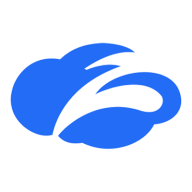


Zscaler Zero Trust Exchange Platform and Tenable Cloud Security compete in cybersecurity. Tenable is seen as having an advantage due to its robust feature set and comprehensive security insights compared to Zscaler's pricing and support strengths.
Features: Zscaler is noted for its secure access, seamless integration, and zero trust architecture. Tenable is distinguished by its comprehensive vulnerability management, asset discovery, and deep integration capabilities.
Room for Improvement: Zscaler could enhance its connectivity speed, user interface, and multi-factor authentication process. Tenable could improve its deployment process, customer service specialization, and cost-effectiveness strategies.
Ease of Deployment and Customer Service: Zscaler is appreciated for straightforward deployment and extensive support. Tenable is effective in deployment with a focus on specialized customer service, although both solutions offer ease of deployment.
Pricing and ROI: Zscaler provides competitive pricing with a focus on ROI through balanced cost and performance. Tenable, despite higher costs, offers a marked return on investment through advanced security features.
The detailed information PingSafe gives about how to fix vulnerabilities reduces the time spent on remediation by about 70 to 80 percent.
After implementing SentinelOne, it takes about five to seven minutes.
Cloud Native Security does offer ROI.
We don't have to purchase many components such as load balancers and proxy servers that were necessary in traditional setups.
When we send an email, they respond quickly and proactively provide solutions.
They took direct responsibility for the system and could solve queries quickly.
Having a reliable team ready and willing to assist with any issues is essential.
With Element, if you need a feature, you can discuss it with them, and if implementation is possible, you will have that feature within a month or two, depending on complexity.
Sometimes, support takes time since the solution has some bugs that need fixing.
I would rate it a 10 out of 10 for scalability.
Scalability is no longer a concern because Cloud Native Security is a fully cloud-based resource.
I would rate the scalability of PingSafe 10 out of 10.
It's a reliable solution that the organization is increasingly adopting for its robust features and security.
We contacted Cloud Native Security, and they addressed it in a day.
The only downtime we had was when switching from V1 to V2 but it was smooth.
In situations where there was a platform issue, they fixed it immediately and provided a complete explanation for the occurrence.
If they can merge Kubernetes Security with other modules related to Kubernetes, that would help us to get more modules in the current subscription.
As organizations move to the cloud, a cloud posture management tool that offers complete cloud visibility becomes crucial for maintaining compliance.
I would also like to see Cloud Native Security offer APIs that allow us to directly build dashboards within the platform.
Adding capabilities for the scanner to automatically pick up changes and add assets automatically would be valuable.
The only complaint I hear in the market is from resellers that Tenable management team in Brazil doesn't play fair with the channel and resellers.
They might be able to identify if something is missing with Zscaler.
I believe the enterprise version costs around $55 per user per year.
There are some tools that are double the cost of Cloud Native Security.
I recall Cloud Native Security charging a slightly higher premium previously.
This helps visualize potential attack paths and even suggests attack paths a malicious actor might take.
The infrastructure-as-code feature is helpful for discovering open ports in some of the modules.
This tool has been helpful for us. It allows us to search for vulnerabilities and provides evidence directly on the screen.
The automatic integration capabilities, particularly with DNS, Azure, and AWS, are extremely valuable.
Perhaps the best functionalities are related to promoting a deeper analysis of the environment where applications are running in terms of creating a double armor of security to block threats that may come in the cloud with Tenable Cloud Security.
The best features Tenable Cloud Security offers in my experience are automatic scanning, frequent scanning, and automatic finding, which I find valuable.
The solution is cloud-based with the latest inspection engines, which I find to be amazing.
| Product | Market Share (%) |
|---|---|
| Tenable Cloud Security | 2.9% |
| Wiz | 23.4% |
| Prisma Cloud by Palo Alto Networks | 14.5% |
| Other | 59.2% |
| Product | Market Share (%) |
|---|---|
| Zscaler Zero Trust Exchange Platform | 17.4% |
| Prisma Access by Palo Alto Networks | 13.7% |
| Cato SASE Cloud Platform | 12.5% |
| Other | 56.400000000000006% |



| Company Size | Count |
|---|---|
| Small Business | 46 |
| Midsize Enterprise | 20 |
| Large Enterprise | 53 |
| Company Size | Count |
|---|---|
| Small Business | 5 |
| Midsize Enterprise | 2 |
| Large Enterprise | 5 |
| Company Size | Count |
|---|---|
| Small Business | 16 |
| Midsize Enterprise | 11 |
| Large Enterprise | 41 |
SentinelOne Singularity Cloud Security offers a streamlined approach to cloud security with intuitive operation and strong integration capabilities for heightened threat detection and remediation efficiency.
Singularity Cloud Security stands out for its real-time detection and response, effectively minimizing detection and remediation timelines. Its automated remediation integrates smoothly with third-party tools enhancing operational efficiency. The comprehensive console ensures visibility and support for forensic investigations. Seamless platform integration and robust support for innovation are notable advantages. Areas for development include improved search functionality, affordability, better firewall capabilities for remote users, stable agents, comprehensive reporting, and efficient third-party integrations. Clarity in the interface, responsive support, and real-time alerting need enhancement, with a call for more automation and customization. Better scalability and cost-effective integration without compromising capabilities are desired.
What are SentinelOne Singularity Cloud Security's standout features?SentinelOne Singularity Cloud Security is deployed in industries needing robust cloud security posture management, endpoint protection, and threat hunting. Utilized frequently across AWS and Azure, it assists in monitoring, threat detection, and maintaining compliance in diverse environments while providing real-time alerts and recommendations for proactive threat management.
Tenable Cloud Security is a comprehensive solution designed to help organizations secure their cloud environments across various platforms, including AWS, Azure, and Google Cloud. It offers continuous visibility, compliance management, and threat detection to ensure that cloud infrastructure and applications are protected from vulnerabilities and misconfigurations.
Tenable Cloud Security exemplifies a comprehensive Cloud-Native Application Protection Platform (CNAPP) by providing a unified solution that covers the entire cloud security lifecycle, from development to runtime. This platform is designed to address vulnerabilities, misconfigurations, threats, and compliance risks across multi-cloud environments, making it an essential tool for organizations adopting cloud-native architectures. In practice, Tenable Cloud Security integrates security into the development process through its shift-left approach, particularly with Infrastructure as Code (IaC) security. This ensures that security measures are embedded early in the development lifecycle, allowing teams to identify and mitigate vulnerabilities before they reach production. Once in production, the platform continues to provide real-time visibility into cloud environments, enabling continuous monitoring and proactive threat detection.
The solution's comprehensive protection spans various aspects of cloud security, including the identification and remediation of misconfigurations, automated compliance management, and advanced threat intelligence. By automating these processes, Tenable Cloud Security reduces the manual effort required to manage cloud security, freeing up resources for more strategic initiatives.
What are the key features of Tenable Cloud Security?
What are the benefits of using Tenable Cloud Security?
Tenable Cloud Security is particularly valuable in industries with stringent regulatory requirements, such as finance, healthcare, and retail. For example, in the financial sector, it helps organizations ensure compliance with regulations like PCI-DSS while safeguarding sensitive data across cloud environments.
In summary, Tenable Cloud Security is a robust CNAPP solution that integrates security throughout the cloud lifecycle, providing comprehensive protection and operational efficiency for cloud-native environments.
Zscaler Zero Trust Exchange enhances security with seamless cloud-based connectivity and VPN-less operation, offering integration with multiple identity providers and advanced security features, suitable for remote work environments.
Zscaler Zero Trust Exchange provides secure, adaptive connectivity without traditional VPNs, allowing organizations to replace legacy systems and bolster remote work security. The platform offers cloud-based protection, single sign-on, dynamic URL categorization, and scalable solutions. While advanced security features like DLP and threat protection enhance data protection, users may face issues with speed, connectivity, and some customization options. Integration challenges, latency due to multi-tenant hosting, reporting delays, and licensing costs require consideration. It supports secure internet access and private application security, ensuring traffic control and data compliance.
What are the key features of Zscaler Zero Trust Exchange?Zscaler Zero Trust Exchange is deployed across industries to secure remote access and enforce zero trust principles. Organizations in finance, healthcare, and technology sectors utilize it for secure internet access and visibility into cloud applications, enhancing performance and compliance in dynamic environments.
We monitor all Cloud-Native Application Protection Platforms (CNAPP) reviews to prevent fraudulent reviews and keep review quality high. We do not post reviews by company employees or direct competitors. We validate each review for authenticity via cross-reference with LinkedIn, and personal follow-up with the reviewer when necessary.